Líneas de investigación
Proyectos en Curso
Proyectos Anteriores
 La deshumanización del mundo
La deshumanización del mundo  Seminar II
Seminar II
Seminar II |
|
Direction: Pedro G. Romero, Santiago Eraso
PRESENTATIONPRESENTATION The anti-humanist condition of Modern Art is constantly reaffirming itself. The recent debate in European culture concerning humanism has done no more than fan the flames. Moreover, the return of radical vanguard practices with a diversity of origins -gender politics, multiculturalism, anti-globalisation, net art, etc.- have made of the anti-humanist condition a common denominator. Humanist culture, based on the written word, first comes into conflict with oral cultures and later, after facing down the dual threat of the audiovisual media and technology, comes into conflict with the art world: the body, images, things. This conflict has a historical dimension which traditionally regards Hegelian philosophy as its motive force. Affected by the momentum of the French Revolution, aesthetics has a dark side in the form of the terror and horror of its historical period: from the guillotine and Napoleon to the attacks on the twin towers and the bombing of Kabul. It now seems that after September 11th History is once again in motion. The reflection that we present here takes us on a journey down the paths mentioned above with their different twists and turns. If, against Hegelian historicism, Massimo Cacciari examines the state of the world as if it were a work of art, Félix Duque, taking Hegel as his starting point, arrives at a time of parody where art constantly imitates the Apocalypse. Ángel González García, against both Hegel and History, returns to the origins of the Modern Period, the Revolution years, in order to let us choose one of two paths; that of art or that of terror.
PROGRAMMEPROGRAMME
Monday, 17th June
Tuesday, 18th June
Wednesday, 19th June
FREE ENTRY
SPEAKERSSPEAKERS
Félix Duque
Ángel González García
Massimo Cacciari
|
||||
